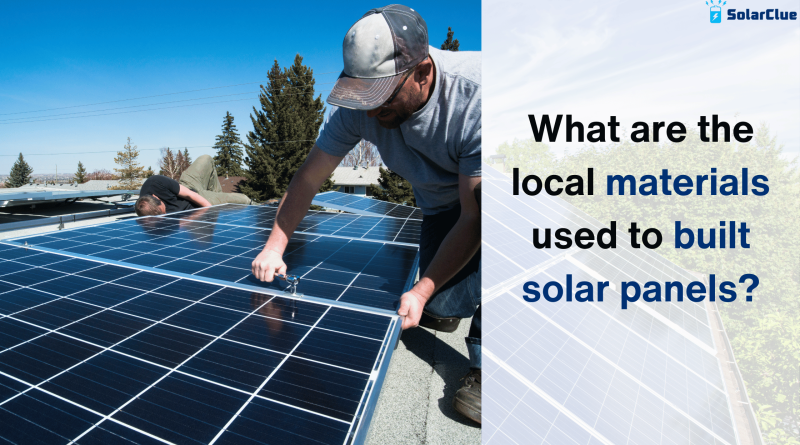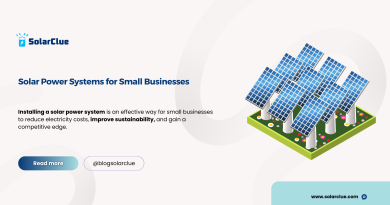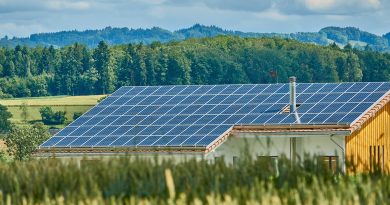Building Solar Panels with Local Materials
Solar panels are becoming an increasingly popular energy solution due to their numerous environmental and financial benefits. However, the production of traditional solar panels often relies on materials that are expensive and not readily available globally. This has led to a search for alternative, more locally sourced materials that could be used to build solar panels. In this blog, we will explore several local materials that can be utilized in the construction of solar panels, providing a sustainable and accessible energy solution for different regions of the world.
Table of Contents
Local Material 1: Bamboo
Bamboo is a versatile and renewable resource that has been used for various construction purposes throughout history. It offers significant potential as a material for solar panels. This fast-growing plant not only grows in abundance in many regions but also possesses excellent strength and flexibility, making it suitable for various applications. Bamboo-based solar panels can be created by using thin slices of bamboo as a substrate for the solar cells, providing a cost-effective and environmentally friendly alternative to more traditional construction materials.
Local Material 2: Agricultural Waste
Agricultural waste, such as crop residues or husks, can be a valuable source of materials for solar panels. Many regions around the world generate substantial amounts of agricultural waste that often go unused or are burned, contributing to air pollution. This waste can be transformed into biochar, a carbon-rich material that can replace conventional carbon-based materials used in solar panels. By repurposing agricultural waste, not only can solar panels be constructed with locally available materials, but also agricultural waste management can be improved.
Local Material 3: Clay
Clay is a readily available material in many parts of the world and has been used for centuries in construction. It offers compelling possibilities for solar panel production due to its excellent thermal and electrical insulation properties. Clay can be molded into the desired shape and form an effective backing material for solar cells. The low cost and accessibility of clay make it an attractive option for regions with limited resources, enabling the production of solar panels using materials readily available in the local environment.
Local Material 4: Abundant Minerals
Certain regions are rich in minerals that can be used as a substitute for expensive materials in solar panels. For example, graphite, a mineral commonly found in many parts of the world, can replace expensive metals like silver in solar cell components. Similarly, mica, another widely available mineral, can be used to replace the costly glass substrate in solar panels. Exploiting the abundance of these local minerals not only reduces the cost of solar panels but also decreases the environmental impact associated with the extraction and transportation of traditional materials used in solar panel production.
Local Material 5: Recycled Materials
Another sustainable approach to solar panel production is the use of recycled materials. Many regions face challenges in waste management, and by repurposing or recycling materials, solar panels can be constructed using locally available resources. For instance, recycled glass can be used as a substrate for solar cells, reducing the dependence on new glass production. Additionally, recycled plastic or metal can be utilized in various supporting structures, making solar panels both environmentally friendly and cost-effective.
Conclusion
Embark on a rewarding DIY solar adventure with SolarClue®’s guidance on building solar panels using local materials. Discover the advantages of sustainability, cost-effectiveness, and community support. Receive expert advice on selecting appropriate materials for durability and efficiency. Address concerns about performance through optimization insights. Prioritize safety with recommended precautions for a secure DIY process. Understand compatibility with existing systems for seamless integration. Overcome challenges with practical solutions for a successful project. Maintain and troubleshoot with tips on cleaning and monitoring. Adopt eco-friendly practices with recycling options and responsible disposal. Connect with a community of DIY enthusiasts for collaboration and collective learning. Access resources on innovative approaches, new technologies, and DIY updates for continuous improvement.
Frequently Asked Questions
Building solar panels with local materials promotes sustainability, cost-effectiveness, and community support. SolarClue® advocates for this approach, emphasizing how using locally sourced materials benefits the environment, lowers costs, and fosters community engagement.
SolarClue® offers guidance on selecting appropriate local materials for building solar panels. We consider factors such as durability, efficiency, and accessibility, empowering DIY enthusiasts to make informed choices for their projects.
SolarClue® addresses concerns about the efficiency and performance of solar panels built with local materials. We provide insights into optimizing design, assembly, and integration, ensuring effective energy production from locally constructed solar panels.
SolarClue® recommends safety precautions for individuals building solar panels with local materials. We ensure a secure and risk-free construction process by providing guidelines for handling materials, tools, and ensuring electrical safety during the DIY project.
SolarClue® assists DIY enthusiasts in understanding the compatibility of solar panels built with local materials with existing electrical systems. We ensure proper integration, compliance with safety standards, and seamless functionality through detailed guidance.
SolarClue® provides insights into common challenges individuals might encounter when building solar panels with local materials. We offer practical solutions to overcome these challenges, ensuring a successful and rewarding DIY project experience.
SolarClue® guides individuals in maintaining and troubleshooting solar panels constructed with local materials. We offer tips on cleaning, monitoring, and addressing potential issues, ensuring long-term efficiency and reliability of DIY solar projects.
SolarClue® encourages individuals to adopt eco-friendly practices in building solar panels with local materials. We provide information on recycling options, responsible disposal, and sustainable maintenance practices, promoting environmental consciousness in DIY solar projects.
SolarClue® assists DIY enthusiasts in connecting with a community engaged in building solar panels with local materials. We foster collaboration, knowledge sharing, and collective learning, creating a supportive network for individuals passionate about sustainable DIY solar initiatives.
SolarClue® offers resources to individuals building solar panels with local materials. We provide information on innovative approaches, new technologies, and updates in the DIY solar project domain for continuous improvement, ensuring DIY enthusiasts stay informed and empowered.



